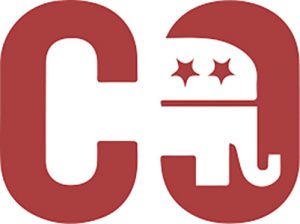by Aaron Harper
I was recently asked about converting an office workstation to the Linux operating system instead of Microsoft Windows. I evaluated several free versions of the Linux Operating System and was so impressed with one of them, that I ended up switching my own computer over.
The differences between the other major Linux distributions are the fit and finish of the product, the companies who back their product, and the artwork of the icons and background screens.
The finalists were Slackware, PCLOS, OpenSuse, Ubuntu, and Fedora 10.
Slackware (www.slackware.com) is one of the oldest distributions of Linux, touted by many to be the only “pure” version. It retains much of the “do it yourself” culture, and is the best Linux for older machines or if you want something stripped down for speed. While it can be made into a great office installation, I wanted something that just works without effort. I can′t recommend it for a beginner.
PCLOS (www.pclinuxos.com) feels a little over-simplified to me. If I wanted to install Linux on a computer for someone who has never used one before, I′d probably choose PCLOS. It wouldn′t surprise me to see such a person outgrow it in fairly short order. For an office, I don′t see it fitting the bill at all.
OpenSuse (www.opensuse.org) is an awesome, well supported distribution. It is clear that Novell has put a lot of time and effort (and money) into it. This office ready distribution works straight out of the box and is available for free download, or you can buy it from Novell for $59.99, which gets you a printed manual and 90 days of installation help.
Ubuntu (www.ubuntu. com) rapidly became legendary as being a distribution that just works. Most folks are unfamiliar with the company it is supported by, Canonical. The company and OS is the brainchild of Mark Shuttleworth, a South African billionaire philanthropist and inventor of several computer security systems in use today. Support contracts are available through Canonical at quite reasonable rates. Ubuntu is ready for workstation use.
Fedora 10 (fedoraproject.org) is the free offering of Red Hat Linux. Red Hat provides the operating system and support to several large companies including IBM and the New York Stock Exchange. The market may crash, but the computers don′t. Not only does it just work, but the fit and polish is well beyond anything I have seen to date from any company. Support is available from free to expensive depending how fast you need it. This distribution is my pick for office workstations.
The cool thing about Linux and Open Source Software is that if you use Open Source Software, you keep the money, and most of your support needs can be handled locally. This keeps the money in the local area, stimulating the local economy. You also get tons of free software as part of the deal. If you buy a Microsoft product, most of your money goes to the marketing arm of one of the richest companies on the planet.



